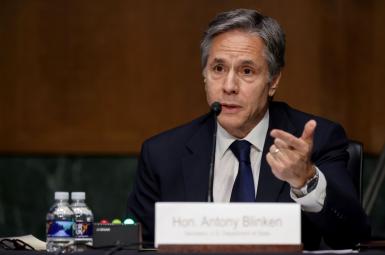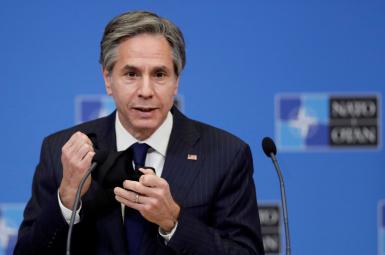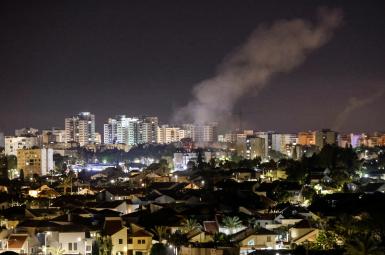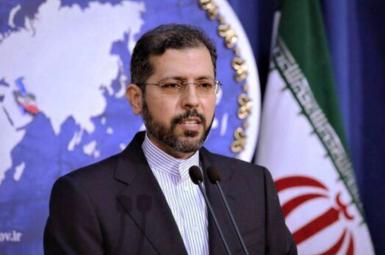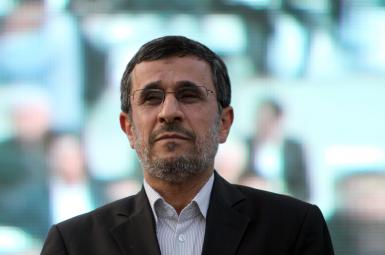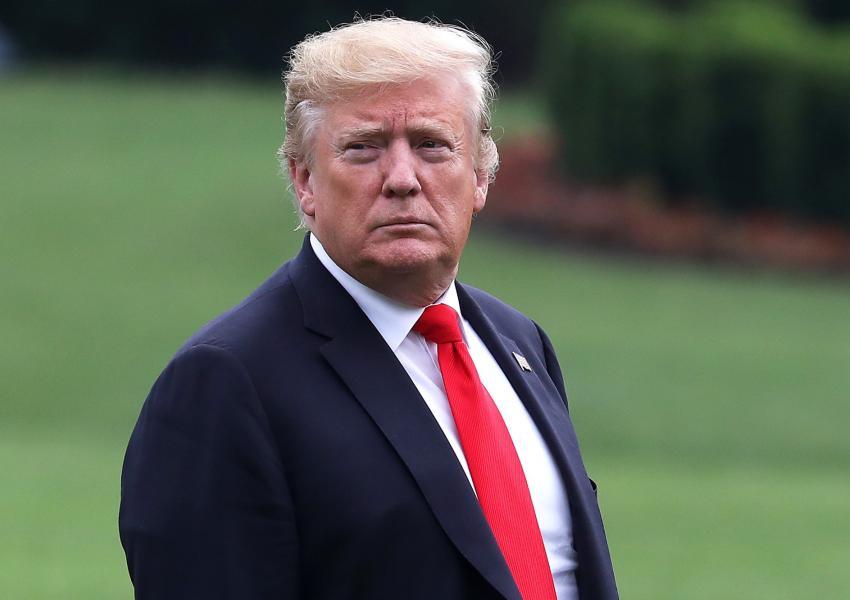
Kuwaiti Newspaper Feeds Speculation Of Secret Trump Talks With Iran
The Iranian media have extensively circulated a Kuwaiti newspaper report based on an unnamed “senior principlist (hardliner) official in Tehran” that US President Donald Trump has opened secret negotiations in Oman with a high-ranking ‘principlist’ Iranian figure to the exclusion of President Hassan Rouhani.
The Al-Jarida report, published on September 25, claims that in a meeting a week ago, Trump’s representatives offered to work behind the scenes “without any media fanfare” to reach an agreement between a re-elected Trump administration and Rouhani’s successor. Underlying the approach, the newspaper suggested, is an expectation of US intelligence agencies that the hardliners will control Iran’s government after the 2021 presidential election.
The source also claimed the US delegates told the Iranian official that Trump has been advised by US intelligence to wait for a principlist administration because they believe Rouhani lacks the power to deliver any deal. They assured the Iranian representative that Trump would not insist on stopping all Iran’s programs – whether military or nuclear was unclear – but expected Tehran to recognize his concerns about Washington’s regional interests as well as Israel’s need for security.
According to the Kuwaiti newspaper, the US delegation has urged Iranian hardliners to persuade the Iranian Supreme Leader Ali Khamenei to consent to a US-Iran deal that would lift the sanctions. The source told Al-Jarida that the US delegation has said Trump was ready to sign a deal with Khamenei personally, even “if he has to travel to Iran”, while he was also prepared to keep some aspects of the deal secret.
A commentary on Saturday in the reformist Bahar News by Saber Anbargoli, an international relations analyst, saw possible evidence of behind-the-scene talks in September’s considerable jump in Iran's oil sales in September (based on tanker tracking), as well as in Trump expressing optimism over a deal within a week to a month of his re-election. Anbargoli did, however, question Al-Jarida’s reliability and called it a “tabloid.”
Many analysts, however, have suggested that talk of US-Iran negotiations is politically motivated. “What is being said in Iran and the United States about negotiations is only for propaganda use and targets a certain audience,” Mansour Farhang, revolutionary Iran’s first ambassador to the United Nations, told Iran International TV on Saturday. “The problems between the two countries can only be resolved through war or diplomacy…Neither option is viable for them at the moment.”
No comment has come from either government. Iran’s Foreign Minister Mohammad-Javad Zarif declared on September 25 that it did not matter to Iran who was the next US president. Zarif insisted that the US could not return to the 2015 nuclear – and presumably Iran again accept the limits it imposed on its nuclear program – unless Washington agreed to compensate Iran for losses due to the US sanctions imposed when Washington abandoned the agreement in 2018.
But nerves in the Rouhani administration over the possibility of being being side-lined by hardliners are reflected in the government-aligned media’s reaction to the Al-Jarida report. Iran newspaper noted that the first Iranian outlet to report the Al-Jarida claim was Shahrara News, a website close to the hardliner parliamentary speaker Mohammad-Bagher Ghalibaf (Qalibaf). In a commentary headlined “Principlists Preparing the Ground For Talks with United States,” Iran newspaper suggested Ghalibaf had a vested interest in bringing the claims to public attention irrespective of their veracity.
One point to be mentioned here is that out research shows actually Asr’e Iran newspaper first published the news in the morning of September 26, a few hours before it appeared in Sharara news.
Iran and Oman have close diplomatic ties going back beyond the 1979 Revolution. Oman’s late ruler Sultan Qaboos reportedly arranged in 2013, during the presidencies of Barack Obama and Mahmoud Ahmadinejad, a secret meeting in Muscat between the US Deputy Secretary of State William Burns and Iranian officials. These talks continued after Rouhani took office later that year and helped facilitate the July 14, 2015 nuclear agreement between Iran and world powers (known as the JCPOA, Joint Comprehensive Plan of Action). Rouhani praised Oman’s role and explicitly thanked Qaboos on July 17.
On Friday [September 25] during a campaign speech in Florida, Trump said both Iran and Venezuela wanted to negotiate with the US but were waiting until after the US election of November 3. “You have a choice,” Trump said. “We can talk now, or we can talk after the election, but after the election, it is going to…be a much tougher deal.”
